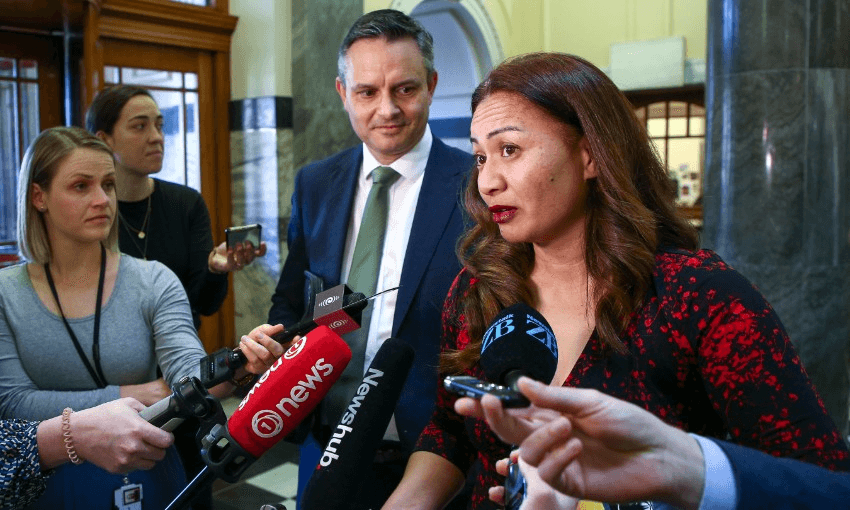Despite recent hiccups, the Green Party still appears to be gaining votes. However, these may be coming from the Labour faithful, writes Pattrick Smellie for BusinessDesk.
Three weeks out from polling day, and just five days before the start of early voting, Labour Party strategists might be expected to be feeling pretty confident.
Poll after poll – including the two public polls taken this month and a reliable, leaked UMR poll – say the same thing: Labour will form the next government.
However, there is such a thing as peaking too early.
There is some evidence there is a swing to the Greens occurring amongst Labour voters who think their party’s safe, and who don’t want it to be so safe that it does as little in the next term as many perceive it to have done in the current one.
As a result, the Greens appear to have shrugged off co-leader James Shaw’s “green school” funding debacle and are back in contention at around 6% to 7% support, roughly where they polled in the 2002, 2008, and 2017 elections and for most of this parliamentary term in opinion polls.
Meanwhile, Labour’s support is looking just a little soft. At 48% in last week’s One News Colmar Brunton poll, Labour could still govern alone, but that was a 5.5% point dip on the previous poll, in late July.
Likewise, the latest Newshub-Reid Research poll showed Labour on the slide, at 50% support, down from the frankly silly 60.9% recorded in late July when the country patted itself on the back about returning to alert level one and before the second lockdown.
Going green
It is clear that some, if not most, of that slide is being lost to the Green Party. The more that happens, the more the parties opposition will have a stick with which to beat Labour.
And the more Labour slides, while the Greens remain strong, the more likely it is that the very thing the opposition parties paint as a bogey – a weaker-than-expected Labour administration heavily influenced by the Greens – will be delivered. To aspirational, particularly younger, Labour/Green swing voters, this would be a desired outcome.
Many Labour people expected more progress on a long list of issues – reduced inequality, taxing wealth, housing affordability and availability, climate change action, domestic violence, to name but a few.
After all, Jacinda Ardern promised a transparent, transformative compassionate government when she held out her hand three years ago and said “Let’s do this.”
The standard excuse to date has been “NZ First stopped us.”
Is this the end?
Well, NZ First looks unlikely to be a problem after October 17. Poll after poll puts the party so far below the 5% threshold it will take a miracle to bring it back to parliament and, even if returned, Labour almost certainly won’t need them.
Tortuously constructed scenarios do exist where National, Act and NZ First would have the numbers, but they’re neither obvious nor high in the balance of probabilities.
So, just about the only thing that could spike Labour’s guns now would be a sudden rush of electoral fear about what a Labour-Greens government might look like.
Unfortunately for Labour strategists, a bunch of its traditional support base appears to be delivering that bogey on a plate for a last-ditch bout of scaremongering from the parties of Opposition.
That’s why we saw Winston Peters come out all guns blazing on Ihumātao last Friday, using the traditional geographic flashpoint for election year race-baiting – the north Auckland beach suburb of Orewa – as the venue.
Low-hanging fruit
It will be increasingly tempting for National to sharpen its teeth on the prospect of Labour-led, but Green-swayed government for the next three weeks. The credibility problems it’s having with the most fundamental parts of its policy platform – its economic plan – suggest it will grab whatever potent weaponry it believes may be to hand.
A focus on life under a Labour-Greens government must be a sitter for Judith Collins when she meets Ardern again in this Wednesday’s TV3 leaders’ debate.
After last week’s bloodless affair on TV1, both leaders have plenty to prove in an election campaign that much of the country appears almost inured to.
This article originally appeared on BusinessDesk. Their team publishes quality independent news, analysis and commentary on business, the economy and politics every day. Find out more.

